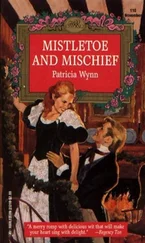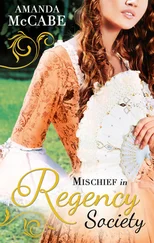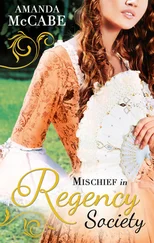Ed Mcbain - Mischief
Здесь есть возможность читать онлайн «Ed Mcbain - Mischief» весь текст электронной книги совершенно бесплатно (целиком полную версию без сокращений). В некоторых случаях можно слушать аудио, скачать через торрент в формате fb2 и присутствует краткое содержание. Жанр: Полицейский детектив, на английском языке. Описание произведения, (предисловие) а так же отзывы посетителей доступны на портале библиотеки ЛибКат.
- Название:Mischief
- Автор:
- Жанр:
- Год:неизвестен
- ISBN:нет данных
- Рейтинг книги:3 / 5. Голосов: 1
-
Избранное:Добавить в избранное
- Отзывы:
-
Ваша оценка:
- 60
- 1
- 2
- 3
- 4
- 5
Mischief: краткое содержание, описание и аннотация
Предлагаем к чтению аннотацию, описание, краткое содержание или предисловие (зависит от того, что написал сам автор книги «Mischief»). Если вы не нашли необходимую информацию о книге — напишите в комментариях, мы постараемся отыскать её.
Mischief — читать онлайн бесплатно полную книгу (весь текст) целиком
Ниже представлен текст книги, разбитый по страницам. Система сохранения места последней прочитанной страницы, позволяет с удобством читать онлайн бесплатно книгу «Mischief», без необходимости каждый раз заново искать на чём Вы остановились. Поставьте закладку, и сможете в любой момент перейти на страницу, на которой закончили чтение.
Интервал:
Закладка:
“Polly,” the old lady said. “That’s who.”
“Is she your daughter?”
“Don’t have any.”
“No daughters?” Sloane asked.
“You deaf?” she said.
Four out of five American families were caring at home for their sick or elderly parents. Women constituted seventy-five percent of these caretakers, who sometimes got stuck with aging uncles or aunts as well, relatives who’d been dumped on them when a spouse died or a son suddenly ran off to Outer Mongolia. Millions of American women who’d once thought they might begin pursuing their own lives once their children were grown and out of the nest now discovered they’d been sadly mistaken: They were doomed to care for their parents even longer than they’d had to care for the children. Which was why they’d asked if Polly was a daughter.
“How about sons?” Elman asked. “Have you got any sons, ma’am?”
“I can’t remember,” she said.
“Any grandchildren? Would you remember any grandchildren?” Haggerty asked.
“Ralph,” she said.
“Ralph wha…?”
“That’s not a dog’s name,” she said.
“Ralph what, would you remember?”
“Here, Ralph,” she said.
“What’s his last name, do you know?”
“I can’t remember,” she said. “He drowned.”
“Any other grandchildren? Any boys or girls you can…?”
“Buddy,” she said.
“Buddy what? What’s his last name?”
“I can’t remember. Where am I?”
“Old Chancery Hospital,” Haggerty told her.
There were four million Alzheimer’s sufferers in the United States of America. This number was expected to triple within the next twenty-five years. But not all cases of abandonment were Alzheimer’s victims; some of them were suffering from other chronic illnesses, some of them were merely old and frail. The woman seemed to be an Alzheimer’s victim. The care of an Alzheimer’s patient was at best trying on a family, at worst debilitating, a round-the-clock regimen of incessant attention that more often than not led to stress, despair, burnout, and eventual physical, emotional, and financial breakdown. It was easy for these men to understand why Polly—or whoever—had wanted out.
Two of these men were doctors.
They had taken the Hippocratic oath.
But what were they to do when someone requiring extensive testing and exhaustive personal care was dropped off on their doorstep with no one in sight to pay the bills?
“Can you tell us anything at all about yourself?” Sloane asked.
“I always wet the bed,” the woman said. “Polly doesn’t like it.”
Haggerty sighed.
“Let’s call Missing Persons,” he said. “Maybe she wandered over to that railroad station all by herself. Maybe somebody’s out there looking for her.”
Sloane doubted it. Besides, wouldn’t the people at the Eight-Six have called Missing Persons before bringing her here? Actually, he doubted that, too. This was a pass-the-buck society.
“Couldn’t hurt,” he said.
But he was thinking they were stuck with her.
THE FROZEN-YOGURT PLACEwas on Stemmler and North Fifth, not too distant from the Eight-Seven’s station house. This was now only nine in the morning. The teenage kid working the counter had just opened the place when the man walked in, and stood there for a while, looking at the chart, and finally told the kid that what he wanted was the no-fat chocolate on a cone. Then, so he’d have his hands free when the kid served him, he said, “How much will that be? So I can get the money out now.”
The kid said, “Depends what size you want.”
His wallet already in his hand now, the man said, “What are the different sizes?”
“There’s the small and the large,” the kid said.
“What’s the difference between them?”
“The small is about this high,” the kid said, holding the palm of his hand some three inches above the top of the cone, “and the large is about this high,” he said, raising his palm a few inches higher.
“I’ll take the small,” the man said.
“Okay,” the kid said, and pulled a lever and began swirling yogurt onto the cone.
“So how much will that be?” the man asked, ready to take from his wallet the bill or the several bills or whatever it would cost to pay for the yogurt before he was unable to handle cone and wallet at the same time.
“I have no idea,” the kid said. “I just started…”
“Excuse me,” the man said, his wallet still in his hand, “but didn’t you just tell me the price depended on the size?”
“Yeah, but…”
“So I ordered the small, you’re making me a small right there, so what’s this you got no idea what the price’ll be?”
“What it is…”
“You tryin’ a be a wise guy?” the man said.
“No, sir, it’s just…”
“You tryin’a make a fuckin fool outta me?”
“Sir, today’s my first…”
“You don’t know what the fuckin price is, huh? You know what this is?” the man said and the kid found himself standing there with a no-fat chocolate on a cone looking into the barrel of a gun. The kid began shaking. The man said, “Never mind, I don’t want the fuckin thing no more,” and shot the kid in the chest.
It was the city’s first shooting that day.
Another one would take place fifteen hours later.
3.
“WE WERE BEGINNINGto wonder when you’d put in an appearance,” Parker said.
“Sure, sure,” Monoghan said.
“Sure,” Monroe said.
“This is now getting to be worthy of Homicide’s close attention, am I right?” Parker said. “A serial sprayer?”
“Sure, sure,” Monoghan said.
“Which is why we’re graced with your company, am I right?” Parker said, and winked at Kling.
“Yeah, bullshit,” Monroe said.
He and his partner were dressed identically, and they now waved away Parker’s wise-ass remarks in unison. As the forecasters had promised, it had begun raining a few hours ago. Now, at seven in the morning, the four men were standing—or trying to stand—under an overhang that might have accommodated only two of them if neither was as wide of girth as the two Homicide cops. Monoghan and Monroe were wearing belted black trench coats, in keeping with an unwritten rule they had formulated for themselves, which dictated that they dress in basic black since they considered the color, or lack of it, fashionable. In truth, they sometimes did look dapper, though not as dapper as they thought , and certainly not today, standing under the dripping overhang in wet and rumpled raincoats. They looked, in fact, like some dark stout seabirds that had just swum ashore in a foul climate somewhere. Both of them kept trying to shoulder Parker and Kling out from under the slim protection of the overhang and onto the sidewalk where the dead man lay all covered with paint and blood.
The rain was relentless.
It washed away the blood, but not the paint.
The dead man had been painted in two metallic tones, gold and silver all over his face and his hands and the front of his T-shirt and barn jacket. He looked like a robot whose wires had been pulled, lying there on the sidewalk all limp and gilded in front of the graffiti-sprayed wall.
“Those are designer jeans he’s wearing,” Monoghan said.
He himself wasn’t feeling quite as sartorially elegant as he preferred looking. That was because he hadn’t wanted to get his black bowler all wet in the rain and had left it home in his closet. Whenever he wore his bowler, Monoghan felt very British. Whenever he and Monroe were out together in their identical bowlers, they called each other “Inspector.” Wot say you, Inspector Monroe? Cheer -ee-oh, Inspector Monoghan. And so on. Actually, they were not inspectors, but mere detectives/first grade—as distinguished from first-grade detectives. No one in the police department—or in his right mind, for that matter—would have called either of them a first-grade detective. In fact, their roles were merely supervisory at best, intrusive at worst.
Читать дальшеИнтервал:
Закладка:
Похожие книги на «Mischief»
Представляем Вашему вниманию похожие книги на «Mischief» списком для выбора. Мы отобрали схожую по названию и смыслу литературу в надежде предоставить читателям больше вариантов отыскать новые, интересные, ещё непрочитанные произведения.
Обсуждение, отзывы о книге «Mischief» и просто собственные мнения читателей. Оставьте ваши комментарии, напишите, что Вы думаете о произведении, его смысле или главных героях. Укажите что конкретно понравилось, а что нет, и почему Вы так считаете.












